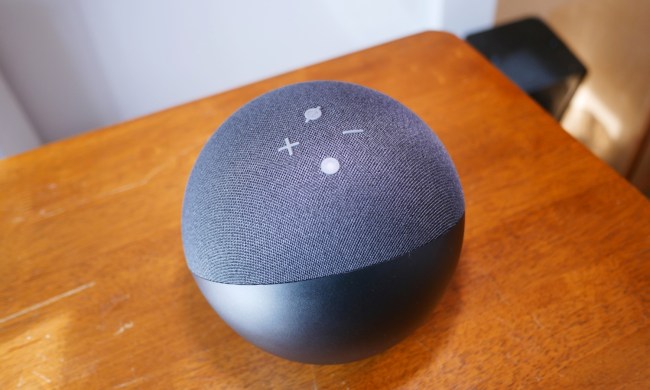People are weirdly affectionate about their Alexa-powered smart speakers manufactured by Amazon — one poll this week found a quarter of customers taking the device to bed with them. But if a California microchip manufacturer is successful in its new collaboration with Amazon, Alexa could soon be free of power cords and ready to roam.
The company is DSP Group, a provider of chipsets for VoIP, multimedia, and digital cordless applications with a 30-year record of successful implementations in phones and watches. Amazon has partnered with the manufacturer through its Alexa Voice Services Division, which has been working with a wide swath of chipmakers to port Alexa into other devices.
“We envision a future where customers interact with Alexa everywhere and from any device,” Priya Abani, director of Alexa Voice Service, said in a statement. “We’re excited to work with DSP Group to achieve this vision and offer developers additional tools that add to the various resources they already have available to build Alexa-enabled devices.”
DSP’s breakthrough is a standardized chip that is smaller than a dime that can be used to embed Alexa into third-party devices. In widespread use, this technology could effectively make Alexa the “ghost in the shell” of everything from phones to smart home networks. It could also effectively help Amazon win the market for digital assistants from competitors like Google Home and Apple’s Siri/HomePod.
In addition to its miniature scale, DSP’s chip is highly competitive in terms of low power consumption. Because the company designed its chip from the ground up for use in small-scale devices, its chip outperforms the competition in devices where space is limited.
DSP announced this week that it is making its technology available to third-party developers through its HDClear 3-Mic Development Kit for Amazon Alexa Voice Service (AVS). The low-power solution is designed to enable developers to build a range of Alexa-enabled devices including smart speakers, wearables, smart home devices, and remote controls.
The new chip line is key to DSP’s strategy for using technology evolution to stay relevant in a volatile market for smart technology. The company’s fortunes have been historically dependent on supplying chips to devices like cordless phones, but the market is disappearing as landline customers make the switch to cellular.
DSP’s market is still a fraction of the business that competitors like Intel see on an annual basis but the company’s partnership with Amazon could be a game-changer. For DSP, it’s a significant inroad to a company that has plenty of its own engineers working on Alexa solutions. For Amazon, it’s a critical first step toward releasing Alexa into a wider market.


